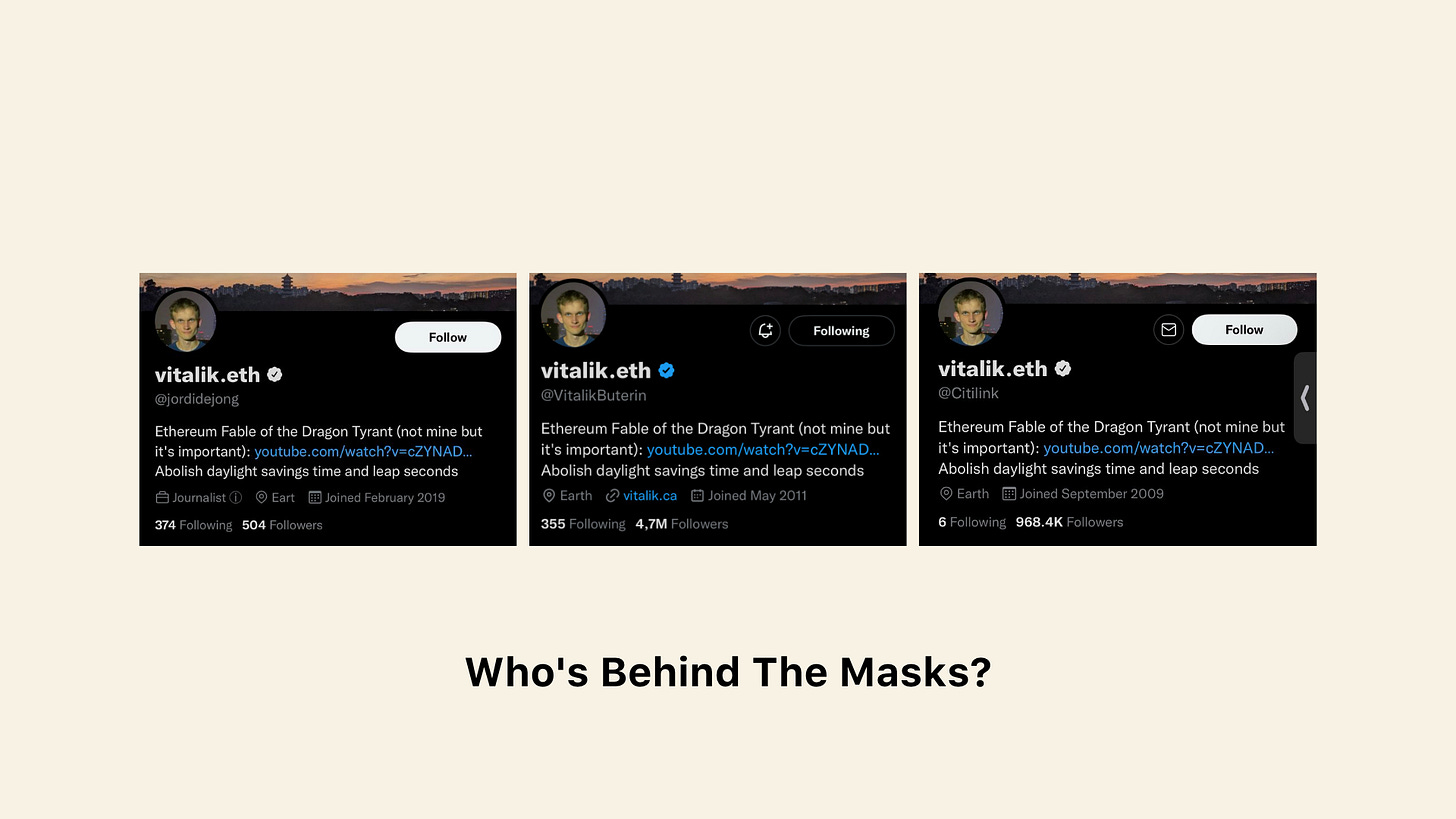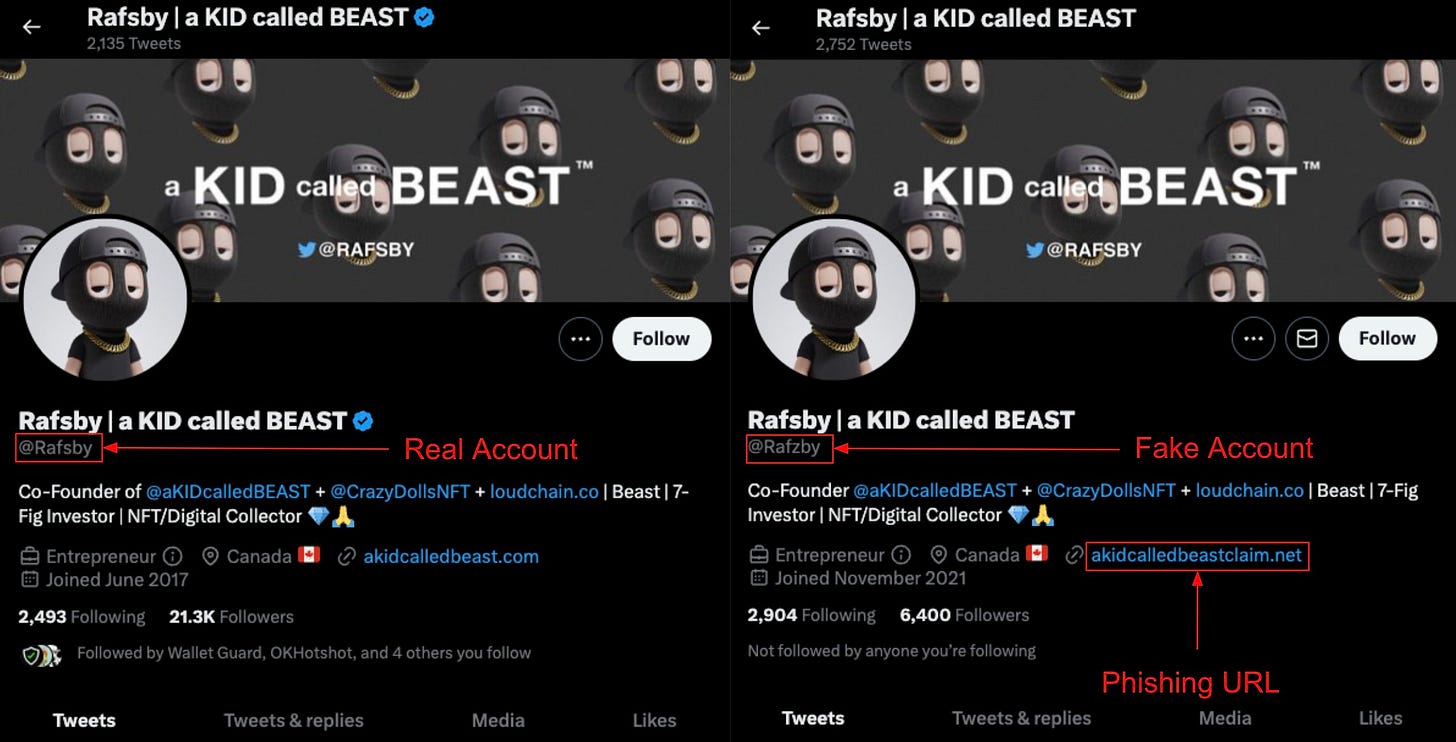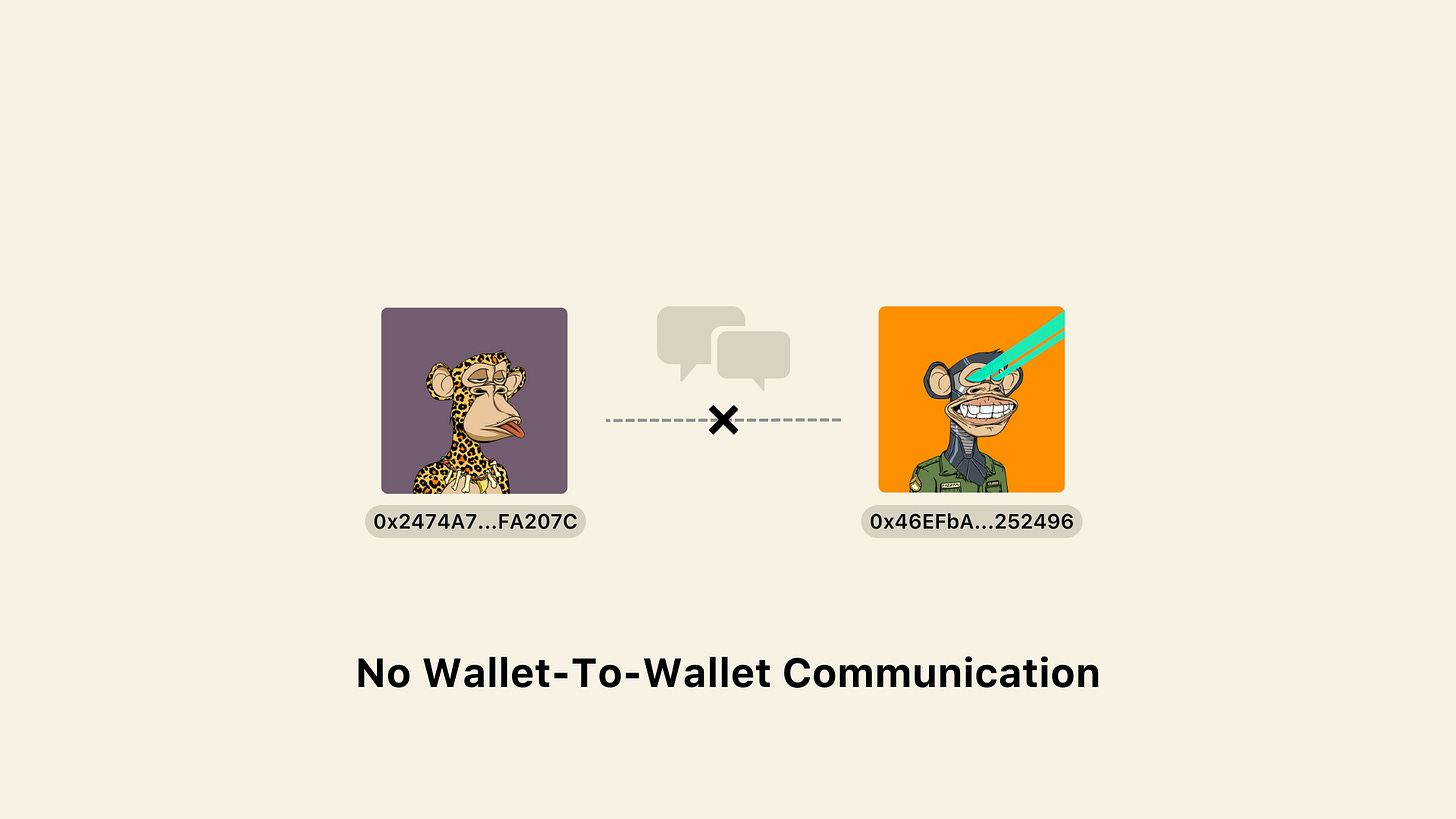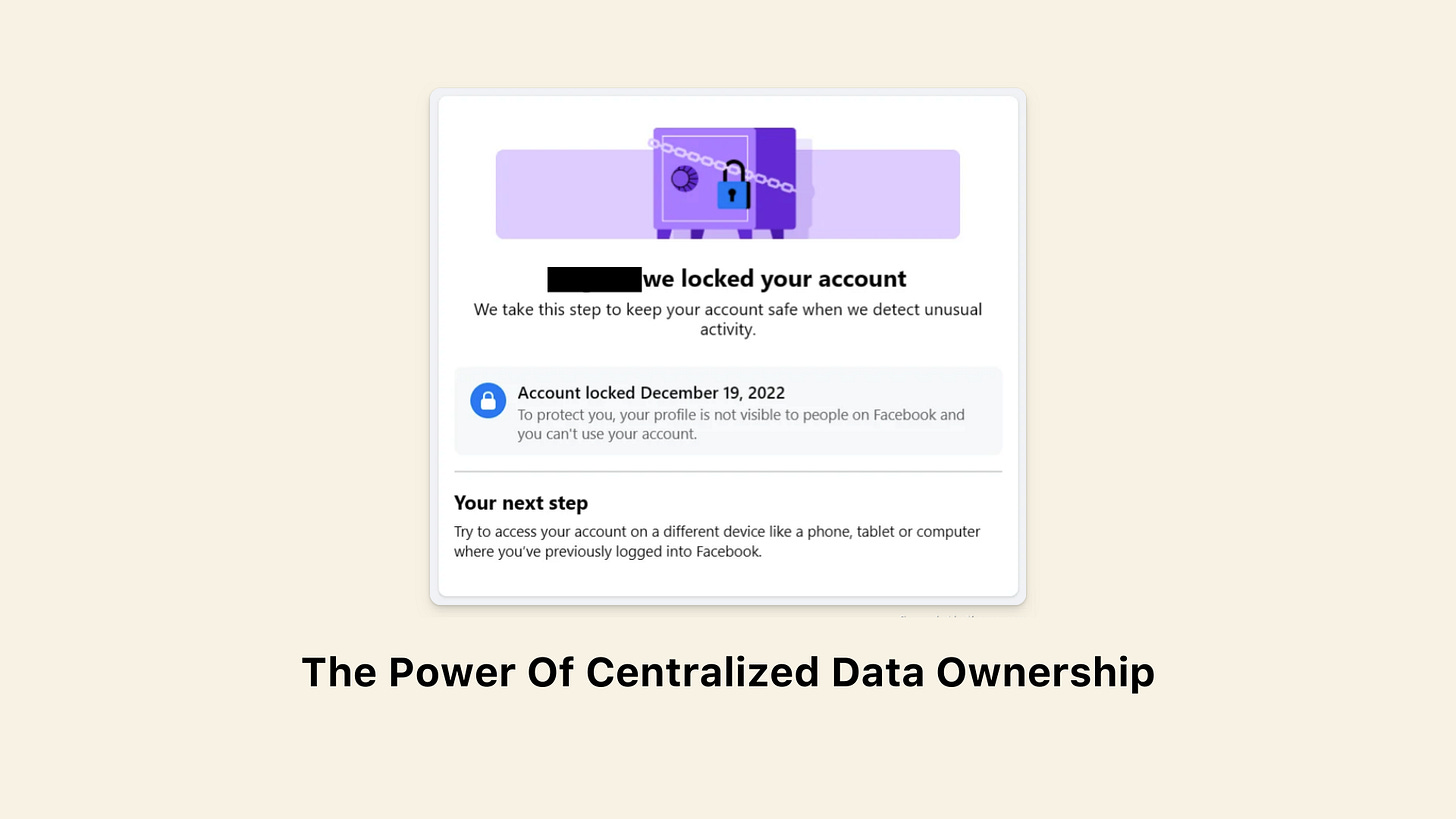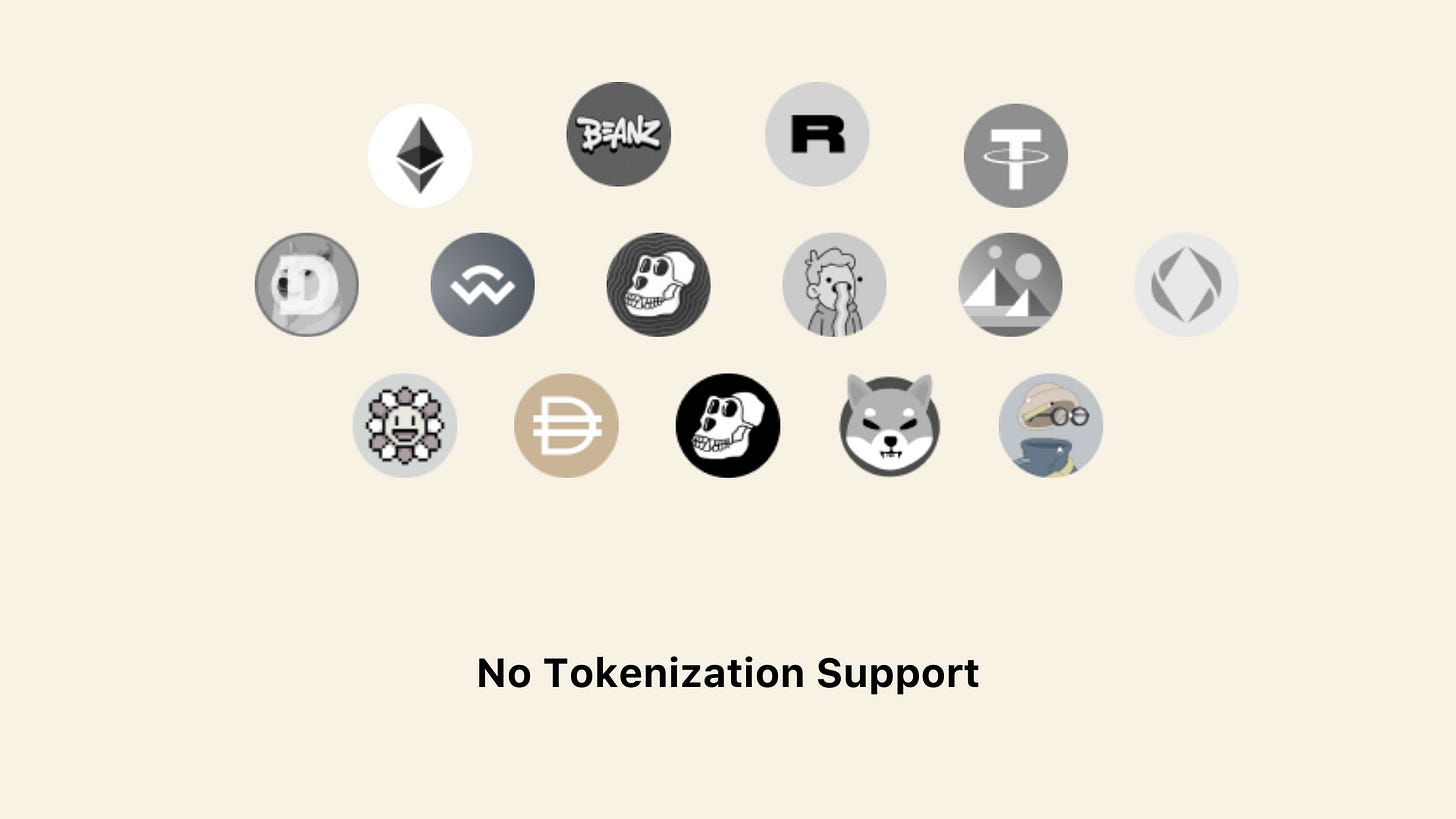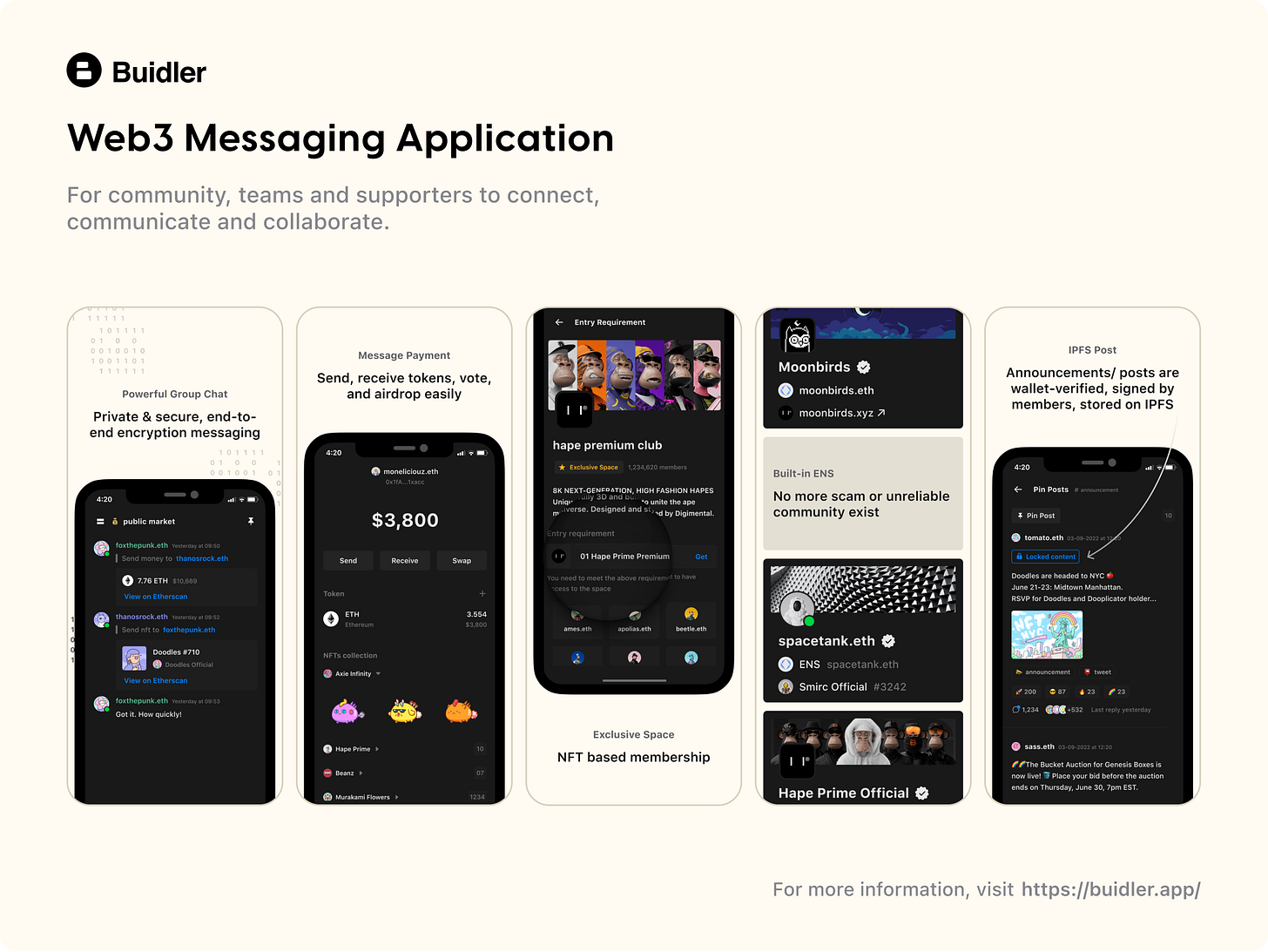Discord, Telegram: The Bottleneck For Growth In Web3
When the web3 community continues to evolve and mature, one thing becomes clear: Discord and Telegram just don't fit in anymore.
When building a web3 community, Discord, and Telegram are often the first platforms that come to mind. They offer a way for people to connect and communicate in real time. Both are popular choices for fostering relationships and building a community.
However, Web3 is forging a new path, radical shifting from the centralized model to shared ownership and decentralized decision-making. And when the web3 community continues to evolve and mature, one thing becomes clear: Discord and Telegram just don't fit in anymore.
So, let's explore the problems these platforms face and the exciting possibilities of a new era beyond Discord and Telegram.
1. The Impersonation Epidemic
The lack of verification opens up the opportunity for phishing and other scams. Gordon Goner, the mastermind behind YugaLabs and Bored Ape Yacht Club (BAYC), has admitted that Discord servers in the crypto world are too vulnerable to cyberattacks.
Hackers have been stealing millions in NFTs by hacking chatbots used by official Discord servers and spreading phishing links. Well-known NFT projects such as BAYC, KnownOrigin, Bubbleworld, Parallel, Lacoste, Tasties, Anata, and many others were among those that fell victim to these hacks.
Hackers compromise NFT Discord servers via phishing, social engineering, and bots. Webhooks, a popular feature in web apps including Discord, has become the target for NFT thieves. Vulnerabilities in plugins like Dyno, MEE6, and CollabLand leave vulnerable to hacker takeovers as administrators, with the ability to send messages and DM users.

After compromising the servers, scammers trick users into connecting their wallets to malicious sites. They create a sense of urgency with NFT giveaways and “exclusive” minting events, prompting users to act quickly to avoid missing out on a free giveaway or limited inventory.
Below is an example of how they do it:
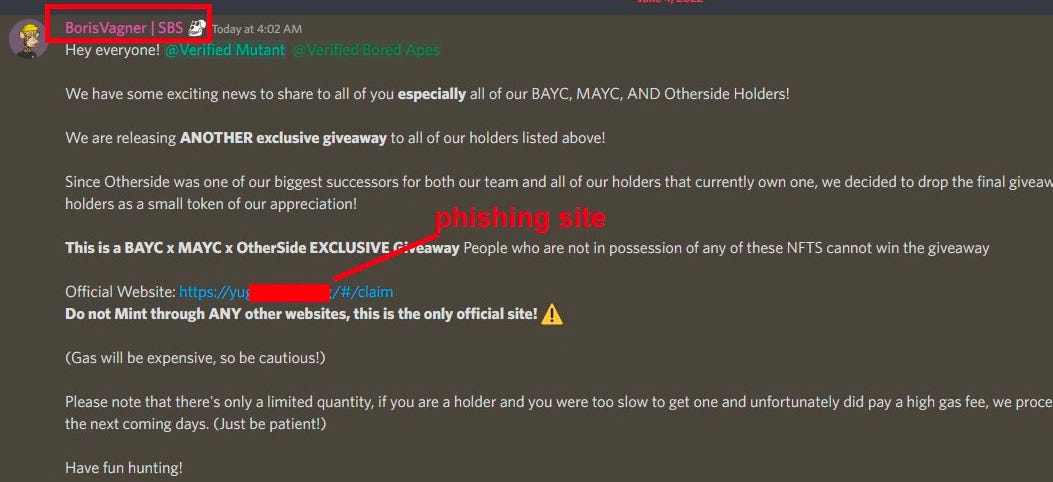
The distinction between fake and real accounts is made difficult by relying solely on username and avatar. This has resulted in numerous fake scams within the crypto and web3 communities.

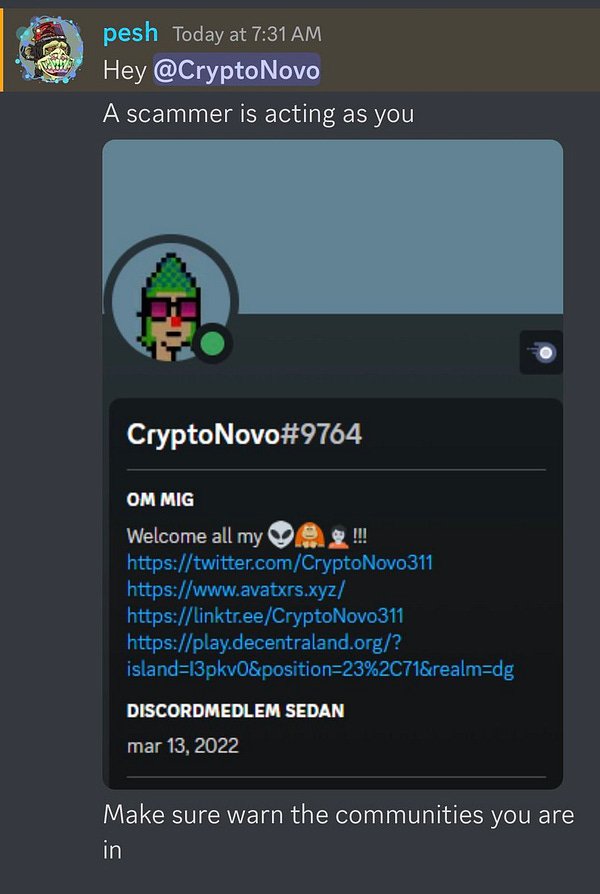
Not only Discord, but also many impersonations happen on platforms like Twitter, Telegram every day. Distinguishing between fake and real accounts is a challenging task.
Distinguishing between fake and real accounts is a challenging task.
Both Changpeng Zhao (CEO of Binance) and Vitalik (co-founder of Ethereum) must also issue warnings about impersonation on web2 socials.


Therefore, Binance is doing what it can to combat impersonation scams on Telegram with a temporary solution. However, it takes time to verify and has yet to be widely known.
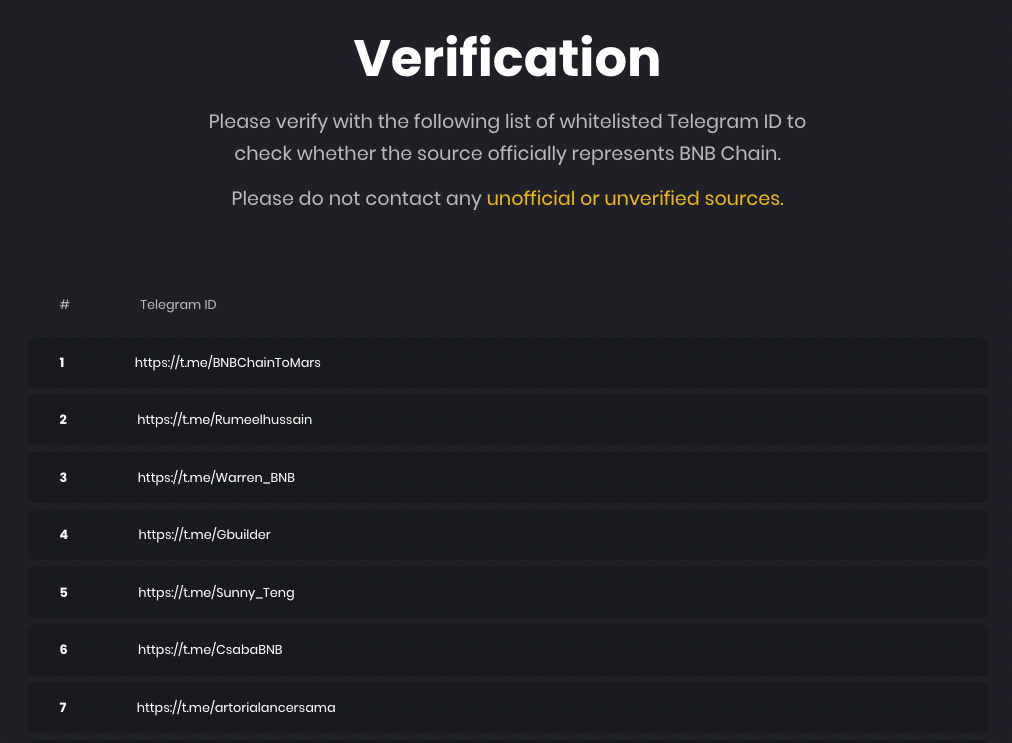
2. The Communication Gap
The missing piece in web3 community building is a way for people to communicate directly with each other using their wallets.
With the rise of decentralized finance (DeFi) and non-fungible tokens (NFTs), there is a growing need for better communication that can bring together NFT owners, project creators, and other stakeholders.
To understand, let's consider the following examples:
NFT Acquisition: Imagine you come across an NFT that you want, but it's not for sale. With a wallet-to-wallet communication tool, you could directly reach out to the NFT owner to ask if they are willing to sell and make an offer.
Defi Liquidity Alert: DeFi lending protocols need a way to let liquidity providers know when they're in danger of liquidation. A wallet-to-wallet communication tool could send push notifications to alert providers, allowing them to take action and avoid unexpected losses.
DAO Governance: During a contentious governance vote, direct communication could be the deciding factor. A wallet-to-wallet communication tool could enable DAO members to reach out and persuade token holders to vote in a particular direction.
Community Building: For new NFT projects aiming to grow their community and attract early users, direct communication with potential users could be a powerful tool. Rather than relying on traditional methods, such as Medium posts and Discord servers, a wallet-to-wallet communication tool would enable projects to directly reach out to user addresses and incentivize them to contribute.
Such a tool is necessary for the full potential of tokenization and decentralization in community building.
3. Who Really Controls Your Data
Facebook, Twitter, Discord, and Telegram are centralized, making it a potential risk to your online reputation. Any policy changes or errors could quickly undo all the effort and community-building you've made over the years.
I have experienced this harsh reality firsthand on Facebook. Despite spending years building a solid presence and forming valuable relationships, a hacker's false report caused Facebook to suspend my account, instantly wiping away my reputation and connections.
And now I have to rebuild my reputation on Facebook from scratch.
Social media giants do not prioritize content creators and community builders. Their algorithms prioritize user engagement overreaching the intended audience, and have no qualms about exploiting your data for profit.
Technical issues & cyber-attacks endanger privacy & security. Recent scandals involve misuse of user data, e.g., privacy violations, breaches, etc.
Cambridge Analytica Scandal: In 2018, the Cambridge Analytica Scandal exposed how a political consulting firm obtained data on millions of Facebook users without their permission and used it to manipulate the 2016 US Presidential Election
Twitter Account Suspensions: In 2021, Twitter's suspension of many accounts for violating its terms of service sparked doubts about the security, ownership, and control of user data on the platform.
The power should be in your hands. Don't let centralization harm your hard-earned efforts and relationships.
4. No Tokenization Support
Discord and Telegram may seem like the perfect solution for connecting with others, but they're not the ideal platform for those who want to build a thriving Web3 community.
Token gating is a powerful tool for community owners. It provides exclusive access and benefits to those who hold specific tokens or non-fungible tokens (NFTs). As a community manager, you can incentivize and reward members for their contributions and involvement.
Until now, Web3 users have had to use third-party tools like CollabLand or Guild.xyz to enable token-gating access to their communities.
What about Decentralized Autonomous Organizations (DAOs)? To create and manage organizations governed by members, Discord users must rely on separate tools, such as Snapshot, Tally, Gnosis Safe, or Juicebox, for voting on proposals, allocating funds, and making decisions.
And let's remember relying on multiple third-party tools increases the threat to your community's privacy and security. So what's the solution?
A Native Platform: The Key To Building A Thriving Web3 Community
The solution is simple. It's time for Web3 communities to have a native platform that supports their needs and values. A platform that puts the power back in the hands of community members, enabling them to create, grow, and manage their communities without sacrificing privacy, security, and control.
Introducing Buidler
Buidler is a web3 native messaging platform that provides users with a secure, efficient, and user-friendly means of communication and collaboration. Whether you're looking to build stronger relationships with your audience or want safe and decentralized communication, Buidler is the perfect solution for you.
With Discord's current problems, Buidler has got you covered:
Impersonation
As a web3 platform, your digital identity is tied to your blockchain wallet, where your online identity is decentralized and under your control.
Buidler solves the impersonation problem with its combination of ENS and NFT Avatar. ENS ensures that each address has a unique and verified name, while NFT Avatars add a visual identity, making recognizing and interacting with one another easier.
Communication
You'll experience wallet-to-wallet communication that's private, secure, and designed with end-to-end encryption by default.
Imagine directly connecting with your token holders, supporters, or community members—no more guesswork or confusion about who's who. With Buidler, you can communicate directly and effectively, creating stronger relationships with your audience.
With Buidler, you get the best of both worlds: the convenience of modern messaging and the security of decentralized technologies.
Data Ownership
In the web3 world, ownership and control over your data is a top priority. And this idea is being realized in Buidler.
IPFS storage enables users to store their official announcements and posts in a decentralized way. Allows users to access their data from anywhere, making it much more convenient and reliable.
With decentralized identity solutions like ENS and NFT Avatars, web3 users can create an online identity that is unique, secure, and truly theirs.
Ready to take control of your data?
Token-based Activity
Our platform is built specifically for the Web3 world, so we understand the unique needs of your community. Whether it's creating and managing organizations governed by members, creating and managing voting mechanisms, or facilitating token-based activities like voting, token gating, and allocating funds, Buidler makes it easy and seamless.
Buidler provides the tools and infrastructure necessary for building and managing token-based communities without needing third-party intermediaries.
Final Thoughts
See, Web3 is a concept that focuses on decentralization, transparency, and shared ownership. In contrast, web2 platforms often prioritize centralization, opacity, and shareholder value maximization.
It's time to accept the truth: Discord, Telegram, and web2 socials are hindering Web3 growth and limiting its potential.
“Ultimately, the goal of crypto is not to play games with million-dollar pictures of monkeys, it’s to do things that accomplish meaningful effects in the real world.” - Vitalik Buterin (co-founder of Ethererum)
And that's just what Buidler is all about!
Our goal is to bring the power of Web3 to everyone, making it easier for anyone to participate in and benefit from this exciting new ecosystem. So why wait? Head to our website to learn more and download our app today.
Together, let's make Web3 happen!
Download for iOS: https://buidler.app/download/ios
Download for macOS: https://buidler.app/download/mac
Try in your browser: https://community.buidler.app
Learn more about us: https://buidler.app
Follow us on Twitter: https://twitter.com/buidler_app
Join our community: https://invite.buidler.app/buidler




